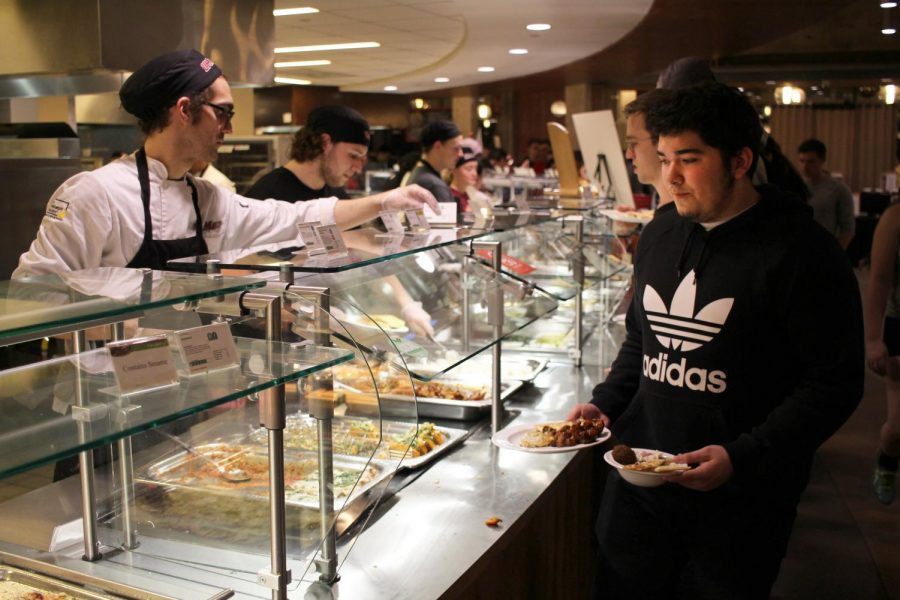COVID-19, a novel form of the coronavirus, is now understandably on everyone’s minds. With its rapid spread from the first case in Wuhan, China in late December of 2019 to the first reported patient in the United States on January 19, the number of cases worldwide is now greater than 300,000 and counting.
With a crisis of such proportions provoking nationwide event cancellations, business closures and universities moving classes online, there has been considerable panic and misinformation. President Donald Trump’s repeated attempts to rewrite history have not helped. Trump stated on February 27 during a White House meeting that “[Coronavirus] is going to disappear. One day — it’s like a miracle — it will disappear,” and at a March 17 press conference explaining instead that “I felt it was a pandemic long before it was called a pandemic.”
Nonetheless, one clear, consistent message has emerged through the din: wash your hands, maintain social distancing, don’t touch your face and cover your cough.
These are all excellent measures, but they only address avoiding catching coronavirus, and assume that any contact will result in uniform, potentially deadly outcomes for everyone. Is there anything that people can also do from a preventive health standpoint to lessen the severity of symptoms and be more resilient in fighting the disease, should they get it? The research says yes.
One research article from 2018 draws insight from the 1918 influenza pandemic, which many are now comparing to COVID-19. Key learnings include that, amongst a number of individual health factors, “nutritional status has long been recognized as an important factor in the outcome of a variety of different infectious diseases.” The paper indicates that both undernutrition and over nutrition, the latter of which manifests as obesity, can compromise one’s immune system.
In other words, those in good health are more likely to be able to fight off illnesses such as coronavirus, while for those with other health concerns, such as poor nutrition, the collective bodily demand of fighting coronavirus in addition to other stressors can increase the risk of more severe symptoms.
People at an increased risk for being severely harmed by coronavirus are those aged 65 and older. How does nutrition factor into this? According to one 2017 paper, in addition to dealing with age-related “adverse alterations in the immune system,” this group is “more likely to have poor nutritional status, which further impacts the already impaired immune function.” The paper concludes by saying that “Optimal immune function depends on a normal, well-balanced nutritional status; however, prevalence of malnutrition is generally higher among the elderly, which further deteriorates the aged immune system.”
While age-related stress may not be as great a factor in determining immune health for youth as it is for older populations, it would be a mistake to ignore immune health concerns in young people. We should look at the impact that nutrition, exercise and other lifestyle choices can have on young people’s ability to fight off viruses. One recent New York Times article pointed out that, “younger adults are generally more resilient than older people, but an increase in chronic health conditions among millennials, in their 20s and 30s now, has made them less hardy than they might think.”
What exactly does eating well mean in the age of coronavirus? According to Dr. Caroline Apovian, Director of the Nutrition and Weight Management Center at Boston Medical Center, it means that “If you’re not in the habit of eating a variety of fruits, veggies, and lean sources of protein, now is a good time to start.” Following the nutrition guidance of independent institutions such as the Harvard T.H. Chan School of Public Health is a good start.
Not only is this crisis an opportunity to take charge of our health and wellbeing, it’s also an opportunity to educate ourselves and understand that junk foods are intentionally designed to be addictive. Combine that with the billions of dollars junk food companies spend on glossy advertising, lobbying efforts and companies’ own efforts to downplay this information, and junk food’s popularity is unsurprising.
It may feel like so much of our life is governed by uncontrollable, unpredictable circumstances, but we always have some control over how we react to those circumstances. To the extent we can choose what we buy at the grocery store and how we cope with stress, we can have some control over our health. As one New York Times article said, “The bottom line is that there is no magic pill or a specific food guaranteed to bolster your immune system and protect you from the new coronavirus. But there are real ways you can take care of yourself and give your immune system the best chance to do its job against a respiratory illness.”
Jennie Moss is a Collegian columnist and can be reached at [email protected].



















